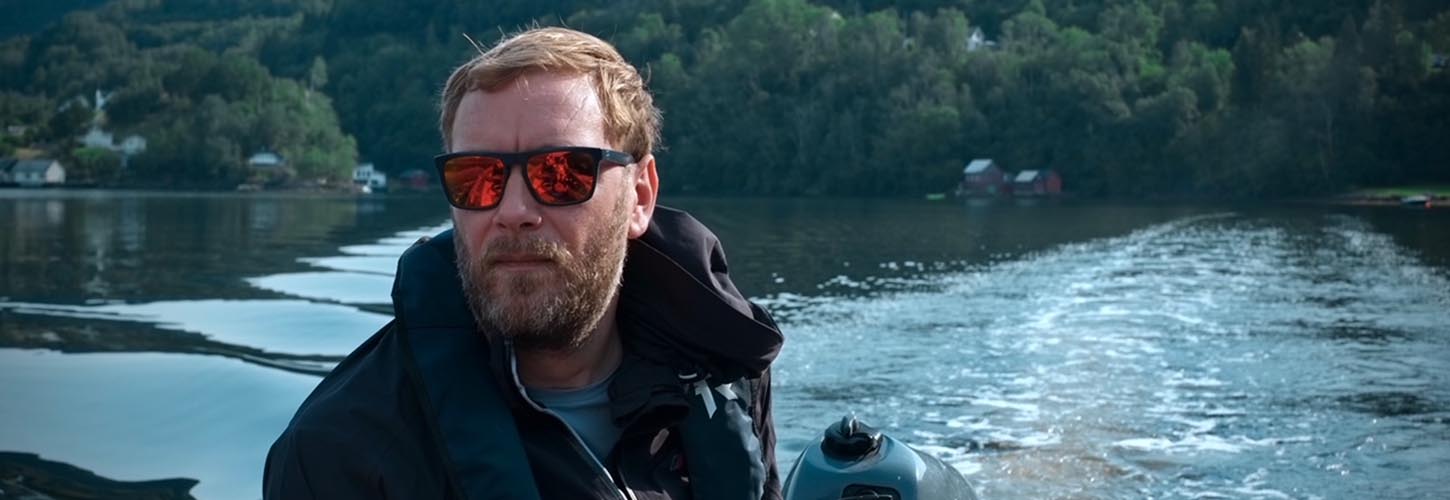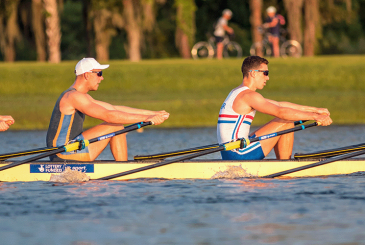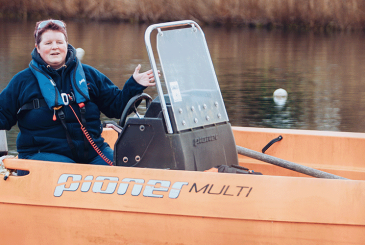Back in January 2022, Rob Mayes won the British Rowing Club Development Coach of the Year award. Nine months on, Joanne Harris caught up with him to find out more about his route into coaching, his top tips, and his plans for the future.
A good rowing coach needs many skills. But ask Broxbourne RC’s Rob Mayes which is the most important and he will say one thing: communication.
“When I say communication, it’s not necessarily how to articulate a technical element, it’s communicating to create an environment that people buy into,” Mayes explains. “You could be the most technical bloke in the world, but if you can’t talk to people you make them feel uncomfortable.
“First and foremost it’s about creating just a good environment that’s going to encourage people to enjoy the session, whatever that is.”
Enjoyment is key to Mayes’ philosophy about rowing – and, indeed, how he got into the sport in the first place.
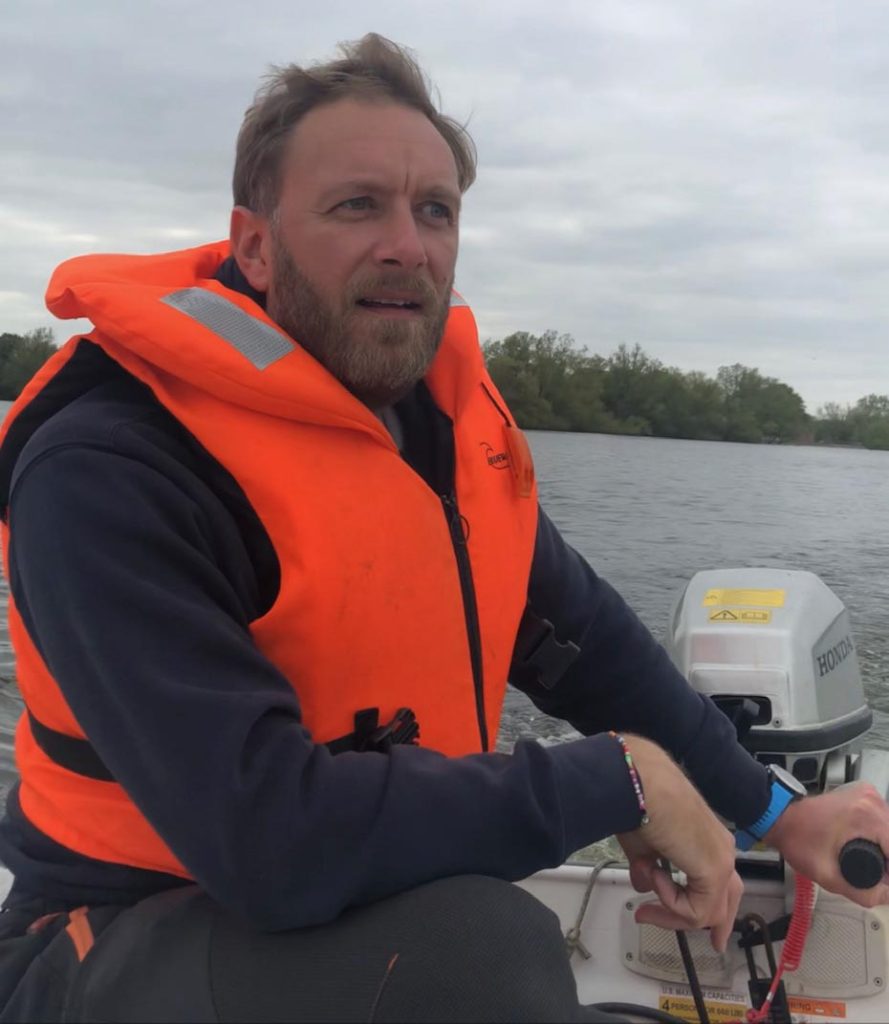
Mayes has recently been appointed as one of three new ‘GROW’ coaches at British Rowing. The GROW programme is aimed at spreading rowing to developing it in ethnically diverse and socio-economically disadvantaged communities and to encourage people with disabilities to take it up.
Mayes is running his arm of the GROW programme out of Broxbourne RC in Essex – the club where he first picked up an oar, and where he learned to coach.
Having fun
Like many others, Mayes first got into rowing through indoor rowing at the gym. Unfit and burned out from a City job, he started an indoor rowing class and quickly became addicted “to the point where I’d almost stop going out on a Friday night so that I could ensure I would get up and be in top form for Saturday morning,” he reveals. “It just made me feel better, my body shape changed, I lost fat.”
From there, he and a friend did a learn-to-row course at Broxbourne, and Mayes has not looked back. He moved on from learn-to-row to joining Broxbourne’s senior squad, and eventually qualifying an eight for the Thames Challenge Cup at Henley Royal Regatta in 2015.
Crossing the line from athlete to coach
But Mayes wanted to do more. He says he was deeply impacted by the commitment and generosity of the volunteers running the Broxbourne learn-to-row, and also saw a gap in the club’s offering in terms of retaining learn-to-row graduates at the club. So he did a Level 2 coaching course, and became the obvious choice to spearhead Broxbourne’s new development squad.
“It was an opportunity for me to welcome people into the sport – teach them the basics to start with, but more importantly have fun with it,” he explains.
The development programme began in 2019, and has hugely increased retention from learn-to-row. At the same time Mayes transitioned from his City job to being a full-time coach and fitness instructor, having also taken a personal training qualification. When Covid-19 hit, he carried on leading circuit and fitness sessions online for Broxbourne members, which he says taught him a lot about coaching.
“I was nervous about it but in a way, it sharpened me up. You can’t coach 30 people so you end up just chatting non-stop and thinking about one cue that might work for some and then other cues that might work for others,” he adds.
Understanding what’s going on
Mayes has been trying to transfer these new skills learned online in lockdown to his coaching in person.
“You have to be adaptive in the way that you communicate,” he says, explaining that it is not just about knowing what drill to introduce when, but knowing whether an athlete understands what they are doing.
“Nine times out of 10 they don’t and you might as well have been talking Elvish,” Mayes continues. He stresses it is important for rowers to come away from a session understanding what they have been working on and why.
“The real technical element of coaching and rowing just comes with experience, just observing what’s going on in the boat,” he adds, describing this part as a “problem-solving exercise”.
When I started coaching I didn’t think people would take me seriously
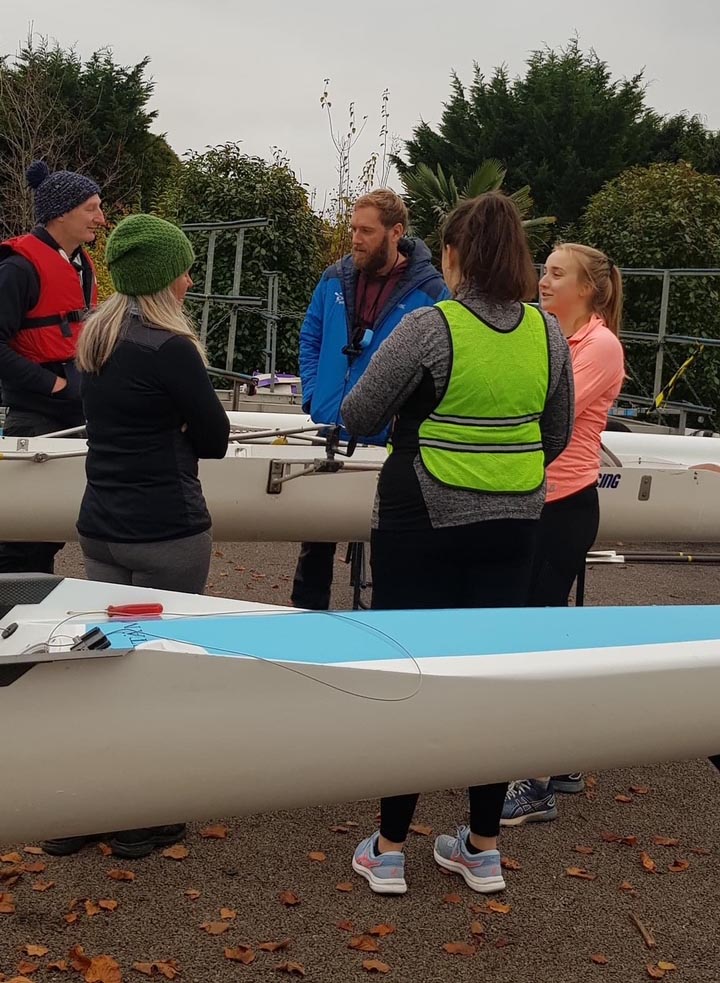
Mayes says his other challenge is not feeling insecure when coaching people who have rowed longer than he has.
“When I started coaching I didn’t think people would take me seriously. That used to create a bit of anxiety, but again it just comes with building confidence,” he explains. “That’s why the development squad was quite a good thing for me to start with. I was still rowing myself, so still learning a lot.”
Widening access to rowing through the GROW programme
Now Mayes wants to bring all these skills to his role as GROW coach. In his first weeks in the job he has been contacting schools and community groups across Essex to start the ball rolling in terms of widening access to rowing, and is setting up a community club in Colchester.
“The GROW project is doing what I want to do, making rowing accessible and targeting those people who wouldn’t normally have access to it,” Mayes says.
“We’re all stressed, we’re all busy at work, and for most people the rowing is the highlight of their week. That for me is what I take with me every time I go down the club and making sure they have the experience they want. You can’t guarantee a good session every time, but at the very least you’re with a great bunch of people and having fun,” he concludes.
What do YOU want to read about on British Rowing Plus?
What do you find interesting here on British Rowing Plus that you’d like more of? What haven’t we covered yet that you’d like to read about?
Let us know by emailing [email protected]


